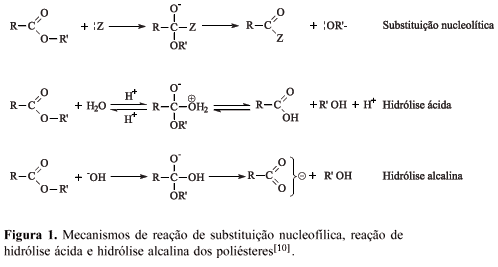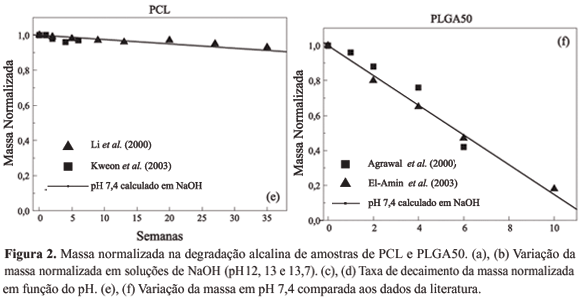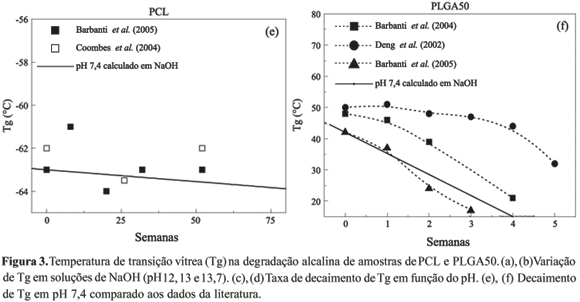The in vitro degradation studies of bioresorbable polymers in alkaline medium have been proposed as alternative to the traditional studies in phosphate buffer solution. This work describes the study of the accelerated degradation of the poly(epsilon-caprolactone) (PCL) and poly(D,L-lactic acid lactic-co-glycolic acid) (50/50) (PLGA50), a biodegradable and bioresorbable polymer widely studied for biomedical applications. Samples were prepared with the melt compression method in a cylindrical mold (2 mm diameter), at 160 ºC, and submitted to the degradation in solutions of NaOH in pH 12, 13 and 13.7 at 37 ºC. The results from the characterization of the mass variation, morphology and thermal properties, using differential scanning calorimetry, showed that the samples of PCL are stable compared to the one of PLGA50. The thermal properties could be extrapolated as a function of time in the physiological pH, 7.4. Once validated, the accelerate study of degradation in alkaline medium proved to be a useful, low cost technique for evaluation of samples with short degradation times.
Bioresorbable polymers; degradation; alkaline medium














